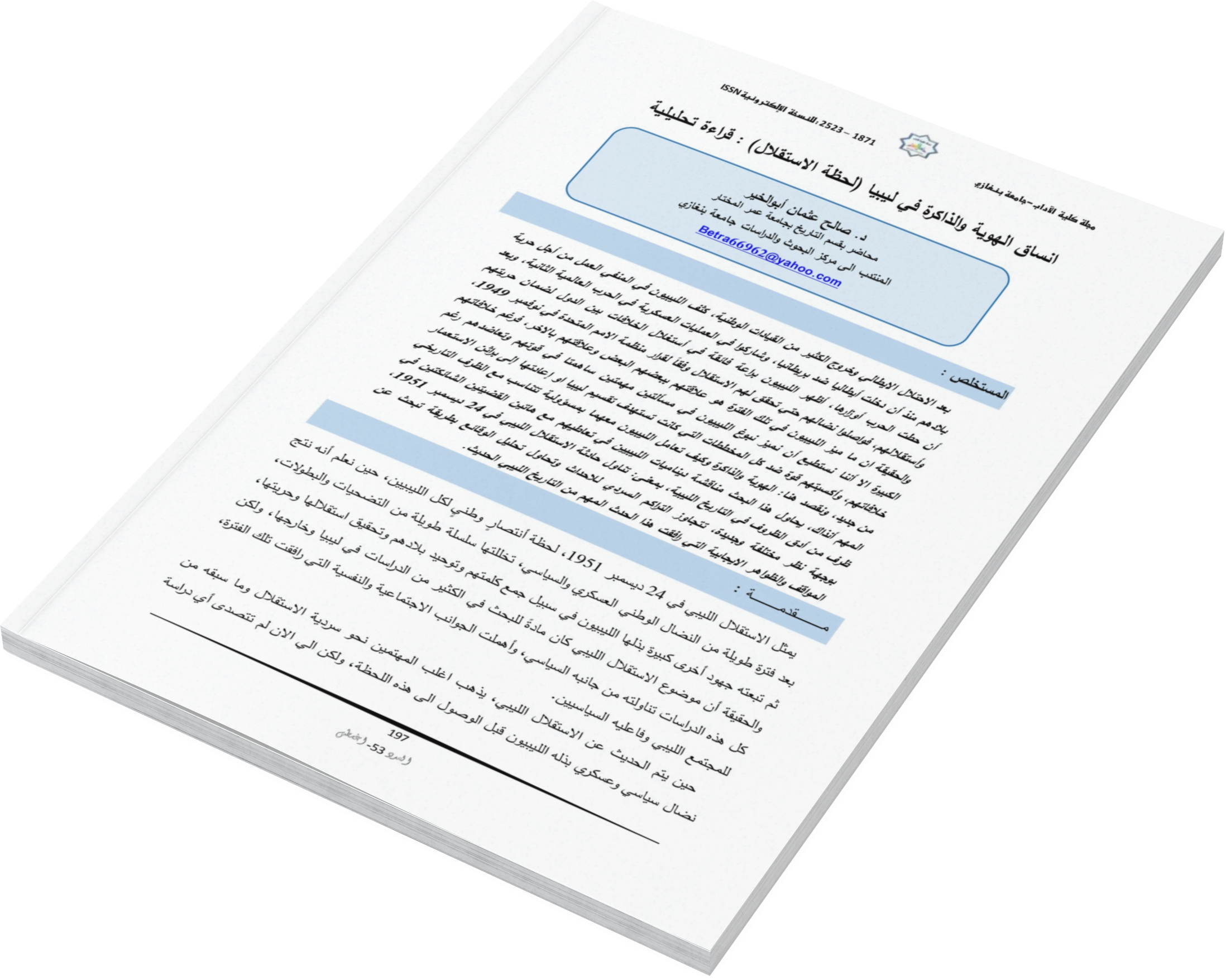Identity and Memory Patterns in Libya (the Moment of Independence): An Analytical Reading
DOI:
https://doi.org/10.37376/jofoa.vi53.6512Abstract
After the Italian occupation and the departure of many national leaders, the Libyans in exile
intensified their work for the freedom of their country since Italy entered the war against
Britain, and they participated in military operations in World War II. After the war ended,
the Libyans showed great ingenuity in exploiting the differences between countries to ensure
their freedom and independence. They continued their struggle until independence was
achieved for them in accordance with the decision of the United Nations in November 1949.
The truth is that what distinguished the Libyans during that period was their relationship
with each other and their relationship with the other, despite their great differences, we can
distinguish the brilliance of the Libyans in two important issues that contributed to their
strength their solidarity despite their differences, and gave them strength against all plans
that were aimed at dividing Libya or returning it to the clutches of colonialism again, and
here we mean: identity and memory and how the Libyans dealt with them with a
responsibility commensurate with the important historical circumstance at the time.
This research attempts to discuss the dynamics of the Libyans in their dealings with these
two thorny issues in one of the most critical circumstances in Libyan history, i.e., dealing
with the Libyan independence incident on December 24, 1951, with a different and new point
of view that goes beyond the narrative accumulation of events and tries to analyze the facts
in a way that searches for the positive attitudes and phenomena that accompanied this
important event in modern Libyan history.
Downloads
References
After the Italian occupation and the departure of many national leaders, the Libyans in exile
intensified their work for the freedom of their country since Italy entered the war against
Britain, and they participated in military operations in World War II. After the war ended,
the Libyans showed great ingenuity in exploiting the differences between countries to ensure
their freedom and independence. They continued their struggle until independence was
achieved for them in accordance with the decision of the United Nations in November 1949.
The truth is that what distinguished the Libyans during that period was their relationship
with each other and their relationship with the other, despite their great differences, we can
distinguish the brilliance of the Libyans in two important issues that contributed to their
strength their solidarity despite their differences, and gave them strength against all plans
that were aimed at dividing Libya or returning it to the clutches of colonialism again, and
here we mean: identity and memory and how the Libyans dealt with them with a
responsibility commensurate with the important historical circumstance at the time.
This research attempts to discuss the dynamics of the Libyans in their dealings with these
two thorny issues in one of the most critical circumstances in Libyan history, i.e., dealing
with the Libyan independence incident on December 24, 1951, with a different and new point
of view that goes beyond the narrative accumulation of events and tries to analyze the facts
in a way that searches for the positive attitudes and phenomena that accompanied this
important event in modern Libyan history.

Downloads
Published
How to Cite
Issue
Section
License
Copyright (c) 2024 Journal of the Faculty of Arts

This work is licensed under a Creative Commons Attribution-NonCommercial-NoDerivatives 4.0 International License.




